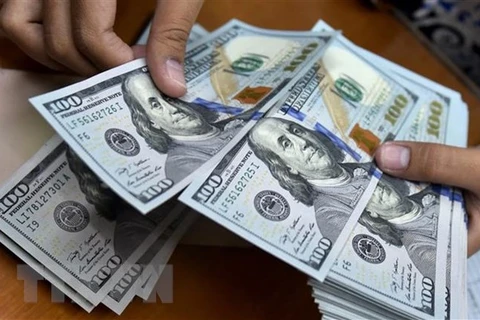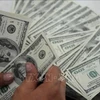
Hanoi (VNA) - The recent 50-basis-point rate cut by the Fed is expected to have a positive global impact, including on Vietnam. Key benefits for Vietnam include increased exports, higher foreign investment inflows, stabilized exchange rates, and positive effects on the stock market.
According to Dr. Can Van Luc and experts from BIDV’s Institute of Training and Research, lower global interest rates will stimulate consumer demand and production. This will boost demand for Vietnam’s exports, particularly in major markets like the U.S. and Europe. The rate cut will also likely lead to increased foreign direct investment (FDI) into emerging markets, including Vietnam.

The depreciation of the USD lowers pressure on the USD/VND exchange rate. The exchange rate had already moderated from a peak of 4.9% in late May to 16% as of September 18, with forecasts suggesting an increase of only 1.3%-1.7% for the entire year.
Additionally, lower global interest rates could reduce borrowing costs for Vietnamese businesses, particularly in foreign currencies like USD and EUR, further stabilizing the domestic interest rate environment.
The stock market and foreign indirect investment are also expected to benefit from this decision.
Experts at An Binh Securities (ABS) agreed that the Fed’s rate cut will positively influence Vietnam’s economy and stock market, as it reduces the cost of foreign currency borrowing and helps curb inflationary pressures linked to rising exchange rates. While lower exchange rates might slightly reduce the competitiveness of Vietnam’s exports, this impact is expected to be minimal.

However, ABS notes that Vietnam's open economy and close ties with the U.S. mean that any future economic scenarios in the U.S. could significantly affect Vietnam.
Mr. Suan Teck Kin, head of Market Research and Global Economics at UOB Bank (Singapore), stated that the Fed's latest decision was unexpected, as UOB had forecast a 25-basis-point rate cut, given the relatively stable economy and declining inflation.
Despite this, Vietnam's central bank is expected to maintain its key interest rates for the rest of 2024, given ongoing concerns about inflation.
Vietnam’s Consumer Price Index (CPI) rose by 4% year-on-year by August, just under the 4.5% target.
Although the Fed’s cuts could increase pressure on Vietnam’s central bank to loosen its monetary policy.
Economic expert Can Van Luc emphasized the need for Vietnam to stay alert to global financial developments, continuing efforts to stabilize key markets, including real estate and gold.
He also called for fiscal policies to focus on targeted expansion, particularly in public investment, while ensuring flexible monetary measures to maintain economic stability and growth through 2024 and beyond./.






















